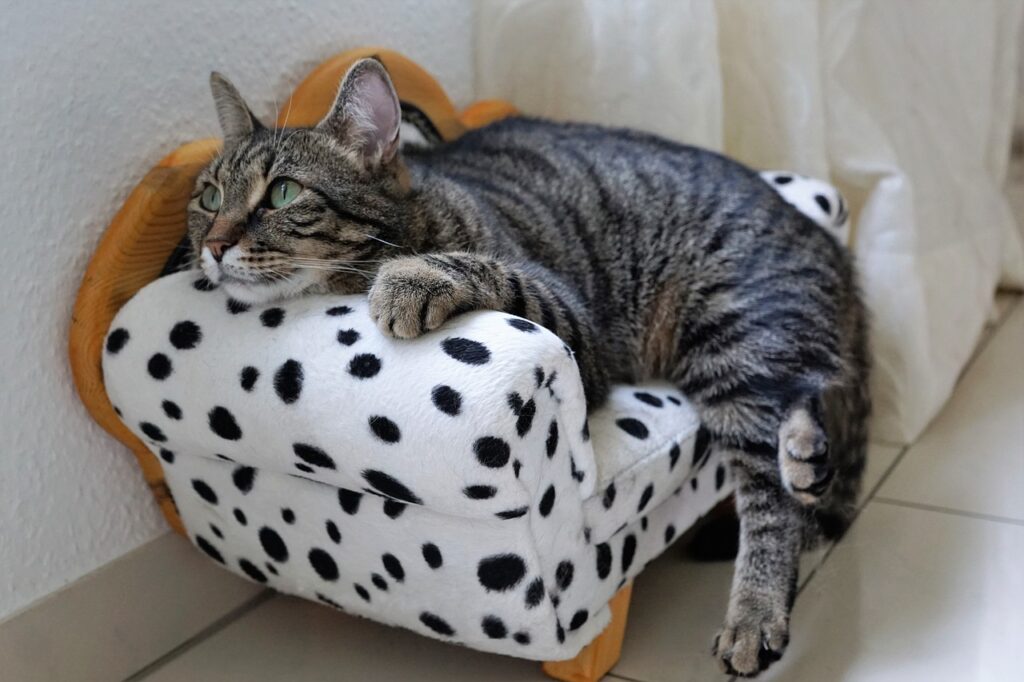We consider our cats to be part of our family, so it is understandable that we’d get worried if they have health issues. Every cat owner would do anything to make sure that their felines feel good and happy. Often there are some conditions that are not very serious, but can cause unpleasant feelings or could lead to some diseases.
One such condition is constipation, which happens to cats as well as to people, so we can understand how they feel and relate to that. Naturally, we try to do anything to help them get rid of this condition. To begin with, before you ask the question how much Miralax to give a cat, you need to learn more about the symptoms, causes and ways of treating constipation. In this article, we cover all of that, so keep on reading to find out how to help your cat.
What are the Symptoms of Constipation in Cats?
First things first, observe your cat’s behavior to determine whether she is suffering from constipation. There are some signs that can help you with that and first one is infrequent stools. If you notice that the cat hasn’t pooped for more than 2 days, or longer than 36 hours to be precise, it is an indicator that she is constipated.
Alternatively, if she did use the litter box, then she has dry, hard stools. Sometimes, your cat might start pooping in the house. This usually means that the cat had discomfort while pooping that she left the litter box early.
Sometimes, constipation can appear with other symptoms which could all lead to a different more severe health condition or disease. For example, your cat can have nausea, vomiting, decreased appetite, she can start hiding or peeing more and lose weight. Don’t think twice about going to the vet in case you notice some of these symptoms.
Main Causes of Cat Constipation
Again, it’s not enough to know how much Miralax to give to your cat for relief, make sure that constipation is the only thing you should treat. Even though most common cause of constipation is food, sometimes it can be a result of some chronic disease. Usually, if your cat is not hydrated enough, if she eats too dry food and doesn’t drink water her intestines would stop working properly.
This is not always the case, though. Constipation can be the result of allergies, therefore it’s good to know if your cat can tolerate some food. Have in mind, that sometimes constipation can be a symptom for another disease. This means that when cat suffers from a chronic disease such as diabetes, kidney disease or even hyperthyroidism.
For that reason, it might be smart to go to the vet before you give Miralax to your cat and ignore any other symptoms that may appear. Also, make sure to control your cat’s diet and regulate her meals in order to prevent obesity. One of the causes of constipation in cats is obesity, stress, anxiety or even arthritis.
Treating Constipation in Cats?
There are a few things you could do to relieve constipation in cats that don’t involve medication. The first thing you can do is to keep her hydrated – make her drink a lot of water. As there are some cats who rarely drink water, the solution is to feed them with wet food. Avoid dry food and treats and give her food rich in protein. Prepare a healthy diet plan for your cat and keep her from carbohydrates or other type of food which could make her gain weight. It’s worth mentioning again – obesity can cause constipation, so keep your cat fit.
How Much Miralax to Give a Cat?
If there is a need for medication, then you can consider giving the cat some laxatives. Polyethylene glycol 3350 or commonly known as Miralax is the medication that is used the most to relieve constipation in cats. This medication is an osmotic laxatives and creates an environment where water is retained in stool and is available without prescription. However, it should not be administered without a supervision of a veterenerian. As we mentioned above, the vet needs to determine whether the cat suffers only from constipation, or this is caused by another condition or disease. Miralax is used for cats and dogs, so we recommend that you consult with your vet about the dosage because this is usually determined by the size of the cat and her condition.
Bottom Line
Instead of trying to figure out the best dosage or the right laxative for your cat, it might be the best idea that you give this decision to a professional. Once you notice some of the symptoms we outlined, take your cat to the vet ambulance or just speak to an expert before you do anything.

